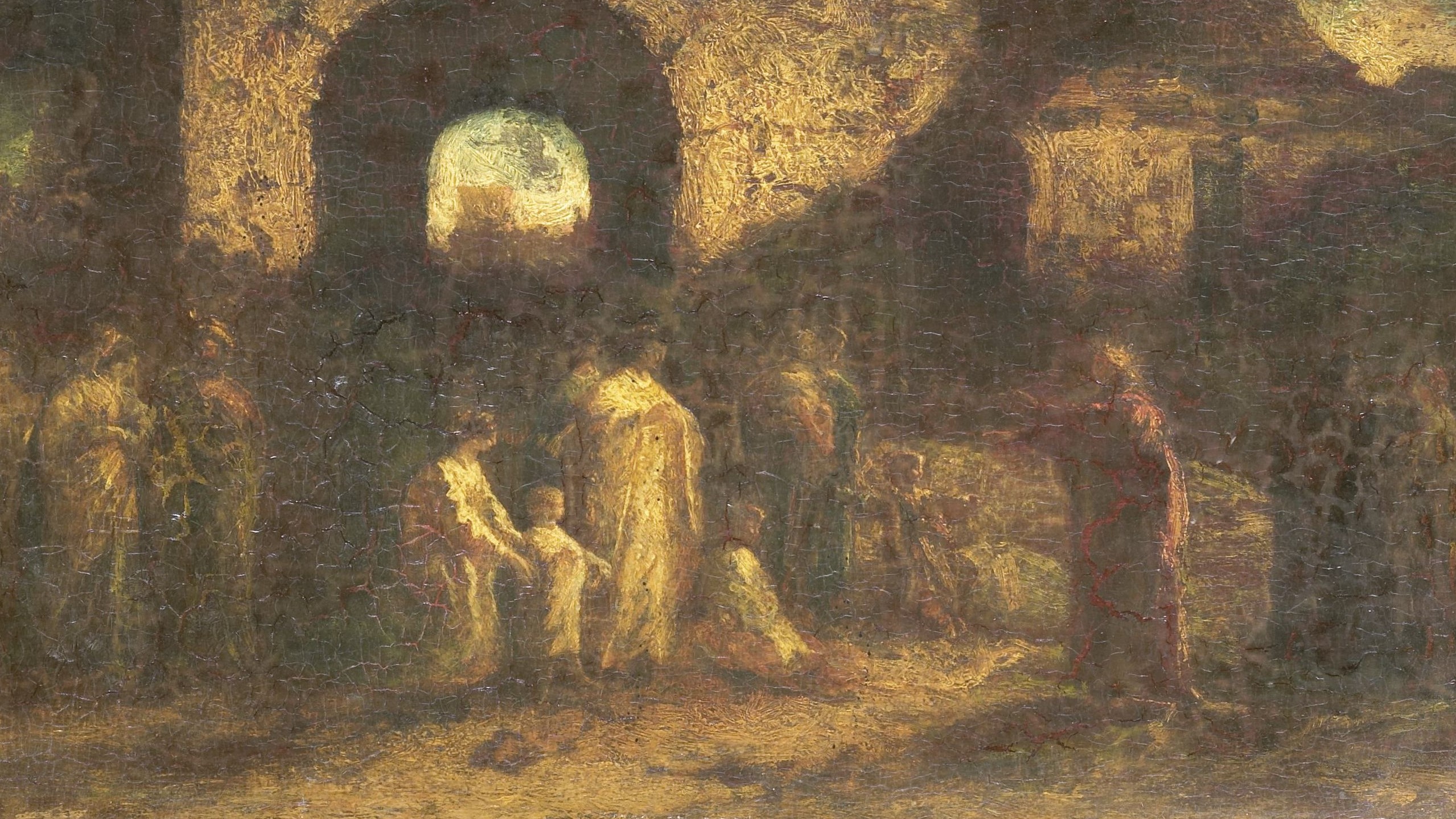
Luke 9:46-48
Narrative Lectionary 444
46 An argumentA aroseB among them as to which one of them was the greatest.C
A “argument” = dialogismos. 14x in NT. From dialogizomai (to consider, have a back and forth debate with an uncertain conclusion; multiple confused minds reinforcing a faulty conclusion); {from dia (through, because of, across, thoroughly) + logizmai (to compute or reckon up, to count; figuratively, it is coming to a conclusion or decision using logic; taking an inventory in a literal or figurative sense); {from logos (word, statement, speech, analogy; here, word as an account or accounting; can also be a word that carries an idea or expresses a thought, a saying; a person with a message or reasoning laid out in words; by implication, a topic, line of reasoning, or a motive; can be used for a divine utterance or as Word – Christ); from lego (to speak, tell, mention)}. This is reasoning, plotting, argument, discussion that reinforces faulty reasoning, debate.
B “arose” = eiserchomai. From eis (to, into, for, among) + erchomai (to come, go). This is to go in in a literal or figurative sense.
C “greatest” = megas. This is big in a literal or figurative sense – great, large, exceeding, abundant, high, mighty, perfect, strong, etc.
47 But Jesus,D awareE of their innerF thoughts,G
D “Jesus” = Iesous. From Hebrew Yehoshua (Joshua, the Lord is salvation); {from YHVH (proper name of the God of Israel; the self-existent and eternal one); {from havah (to become) or from hayah (to come to pass, become, be)} + yasha (to deliver, defend, help, preserve, rescue; properly, to be open, wide or free, which implies being safe. So, in a causative sense, this is to free someone)}. This is Jesus or Joshua in Greek – the Lord saves or the Lord is salvation.
E “aware” = eido. This is to know, consider perceive, appreciate, behold, or remember. It means seeing with one’s eyes, but also figuratively, it means perceiving – seeing that becomes understanding. So, by implication, this means knowing or being aware.
F “inner” = kardia. Literally the heart, but figuratively mind, character, inner self, will, intention, thoughts, feelings. Also, the center of something. The word heart is only used figuratively in the Old and New Testaments. This is where “cardiac” comes from.
G “thoughts” = dialogismos. Same as “argument” in v46. See note A above.
tookH a little childI and putJ it by his side,
H “took” = epilambanomai. 19x in NT. From epi (on, upon, against, what is fitting) + lambano (active acceptance/taking of what is available or what has been offered; emphasizes the choice and action of the individual). This is to take hold of, catch, or seize. It can also mean to help. It focuses on the intentionality and resolve of the one doing the catching.
I “little child” = paidion. From pais (child, youth, servant, slave); perhaps from paio (to strike or sting). This is a child as one who is still being educated or trained. Perhaps one seven years old or younger. Used figuratively for an immature Christian.
J “put” = histemi. This is to stand, place, establish, appoint, stand ready, be steadfast.
48 and said to them, “Whoever welcomesK this child in my nameL welcomes me, and whoever welcomes me welcomes the one who sentM me; for the leastN among allO of youP is the greatest.”
K “welcomes” = dechomai. This is to warmly receive, be ready for what is offered, take, accept, or welcome. It is to receive in a literal or figurative sense.
L “name” = onoma. May be from ginosko (know, recognize, learn from firsthand experience). This is a name, authority, cause, character, fame, reputation. The name was thought to include something of the essence of the person so it was not thought to be separate from the person.
M “sent” = apostello. Related to “put” in v47. From apo (from, away from) + stello (to send, set, arrange, prepare, gather up); {probably from histemi (see note J above)}. This is to send forth, send away, dismiss, send as a messenger. It implies one that is sent for a particular mission or purpose rather than a quick errand. This is where “apostle” comes from.
N “least” = mikros. This is small in reference to a size or the number of something, least or less. Figuratively, it can refer to little dignity.
O “all” = pas. This is all or every.
P {untranslated} = huparcho. From hupo (by, under, about, subordinate to) + archo (to rule, begin, have first rank or have political power). This is to begin or be ready, to exist or possess. It is what one already has or possesses.
Image credit: “Christ Blesses the Children” by Adolphe Joseph Thomas Monticelli, 1870 – 1886.
